3570 W. Florida Ave. Suite 104, Hemet CA 92545
(951) 210-7800
Learn more about our program and book your first free class
GET STARTED

Claim Our Offer
Claim our exclusive web offer and take advantage of our Free Trial Class

Schedule Your Trial
Book a time to visit, take a tour of our school, and try a class

Start Your Journey!
Enjoy your class and get immersed in the martial arts culture and spirit!
About Us
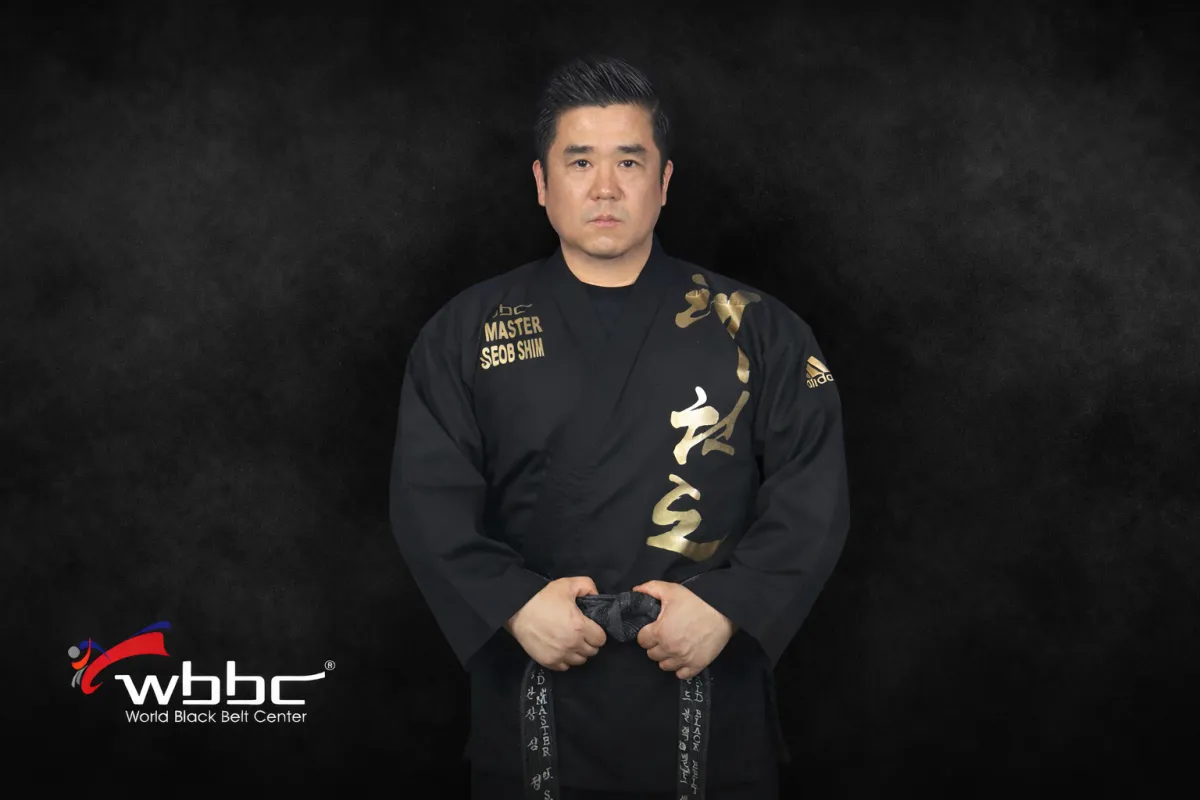
Welcome to our school
Hello parents, and thank you for considering World Black Belt Center for your child.
We know how important it is to find an activity that nurtures discipline, confidence, and respect. Inspired by Taekwondo and Hapkido, we aim to guide every student toward personal growth—not just in martial arts, but in everyday life.
Whether they’re learning new techniques or discovering their own strengths, our staff is here to provide a safe, encouraging environment. We look forward to welcoming you and your family into our WBBC community.
WHAT OUR MEMBERS ARE SAYING
A very good place to teach your child discipline, respect, leadership and gain confidence. I totally recommend this place WBBC is the best! From the Master to the instructors they are very good at teaching your child good skill
Damaris C, Proud Parent
My 5yr old has been here for over 6months and his obedience and discipline have improved amazingly since Master Shim and his staff been training with him. Great school! Worth the money!
Dee A, Proud Parent
Not just self defense! Master Shim and his staff are so great with the kids. They learn focus, confidence, self discipline, teamwork, respect, good sportsmanship and so many other great qualities. My grandson loves it!
Carolynn S, Proud Grandparent
PROGRAMS
A path for every student
Learn more about our programs designed to help students of all ages and levels grow.
"A Black Belt is a White Belt That Never Gives Up"
our latest articles
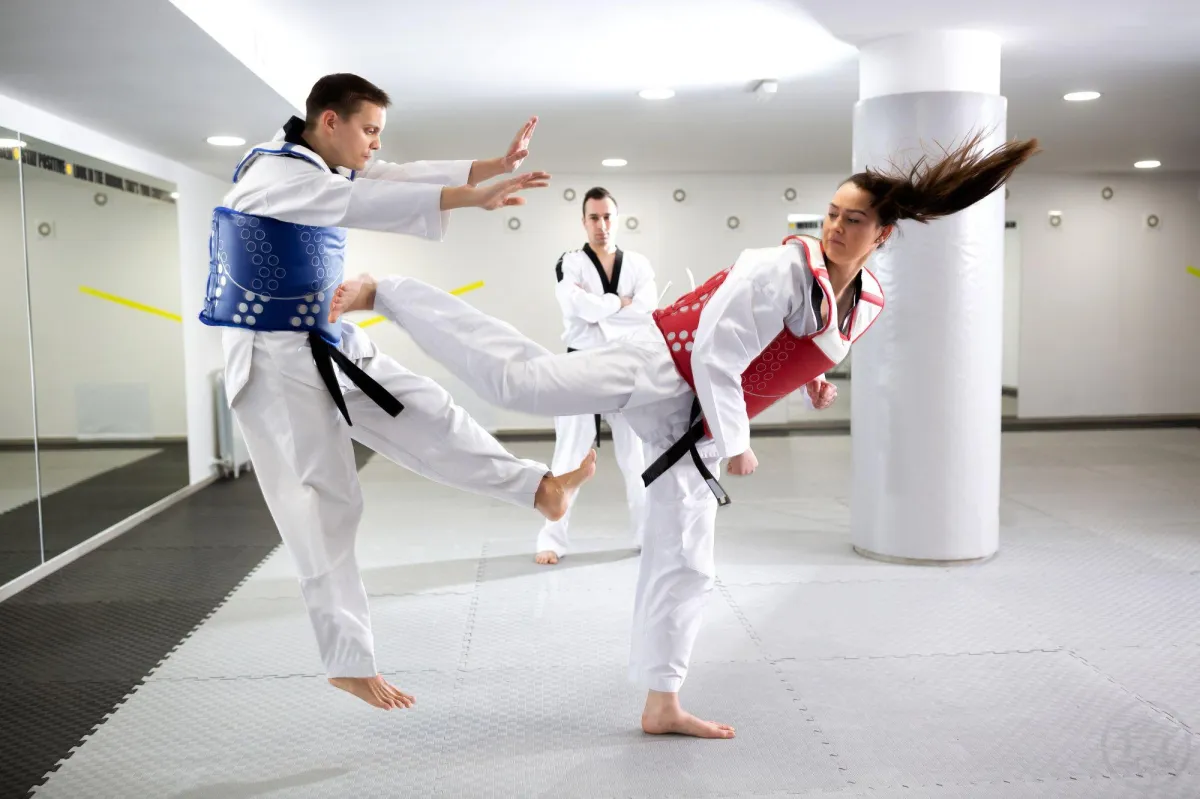
What is Taekwondo?
Taekwondo, Tae Kwon Do, or Taekwon-Do is a Korean Martial Art, specializing in its quick, powerful, and effective leg kicks. The literal meaning translates to “the way of the foot and fist.” It has become one of the most popular styles around the world for competitions and beginning style for anyone getting into martial arts at any age.
Its origin dates back to ‘The Three Kingdoms of Korea’ from 57 BC to 668 AD. The three kingdoms joined together in an unarmed system known as Subak. Its development rose in culture and its training of military soldiers where it became a popular sport and entertainment. As the Goguryeo dynasty ended and transitioned to the Joseon dynasty, so did Subak where it was then only practiced for sport and competition.
Taekkyon then emerged within the Joseon dynasty as the successor of Subak. Its style still exists today in competitions and demonstrations where it focuses on its ability to take your opponent off balance by tripping or throwing.

During the Japanese Occupation of Korea from 1910 to 1945, Korean martial arts were banned and Koreans were forced to learn Japanese martial art styles, such as Okinawan and Shotokan Karate. Hwang Kee was an important figure during this time where he studied and mastered Taekkyon. However, his knowledge of the style became an issue for Japanese authorities which forced him to move to China where he studied the martial art of Kuk Sool under Chinese Master Yang Kuk Jin, a form of Kung-Fu.
When World War II ended, so did the Japanese occupation. Hwang Kee returned to Korea where he became one of nine founders of a new martial arts system. Towards end of the Korean War, the style had a mixture of Japanese, Chinese, and Korean styles which became known as Tang Soo Do. Each founder and their schools, known as Kwans, had their own iteration of the Tang Soo Do style which quickly became very popular in Korea. In 1952, the president of Korea, Syngman Rhee, had suggested the Kwans unite their iterations into one style. That style became known as Tae Soo Do.
Hwange Kee continued to develop his iteration of Tang Soo Do, which became known as Moo Duk Kwan style. His style became the most popular and widely iteration of Tang Soo Do. Along with another Kwan Founder and military general, Choi Hong Hi, suggested a change in the name to Tae Kwon Do and became founders of the style known and practiced today.

In 1959, the Korean Taekwondo Association (KTA) was formed to complete the unification of the arts. In 1973, the South Korean Ministry of Culture, Sports, and Tourism established Kukkiwon, the official World Taekwondo Academy and Headquarters. Along with KTA, they formed the World Taekwondo Federation to promote the martial art as an international sport.
In 1962, Jhoon Goo Ree opened the first American Taekwondo school in Washington DC and became the Father of American Taekwondo. Taekwondo today has many variations and continues to be one of the most popular sports in the world. Taekwondo is one of two martial arts to be accepted as an Olympic sport, the other being Judo. Its rules and regulations of the Taekwondo Olympic sport is overseen by the Kukkiwon today.

What is Taekwondo?
Taekwondo, Tae Kwon Do, or Taekwon-Do is a Korean Martial Art, specializing in its quick, powerful, and effective leg kicks. The literal meaning translates to “the way of the foot and fist.” It has become one of the most popular styles around the world for competitions and beginning style for anyone getting into martial arts at any age.
Its origin dates back to ‘The Three Kingdoms of Korea’ from 57 BC to 668 AD. The three kingdoms joined together in an unarmed system known as Subak. Its development rose in culture and its training of military soldiers where it became a popular sport and entertainment. As the Goguryeo dynasty ended and transitioned to the Joseon dynasty, so did Subak where it was then only practiced for sport and competition.
Taekkyon then emerged within the Joseon dynasty as the successor of Subak. Its style still exists today in competitions and demonstrations where it focuses on its ability to take your opponent off balance by tripping or throwing.

During the Japanese Occupation of Korea from 1910 to 1945, Korean martial arts were banned and Koreans were forced to learn Japanese martial art styles, such as Okinawan and Shotokan Karate. Hwang Kee was an important figure during this time where he studied and mastered Taekkyon. However, his knowledge of the style became an issue for Japanese authorities which forced him to move to China where he studied the martial art of Kuk Sool under Chinese Master Yang Kuk Jin, a form of Kung-Fu.
When World War II ended, so did the Japanese occupation. Hwang Kee returned to Korea where he became one of nine founders of a new martial arts system. Towards end of the Korean War, the style had a mixture of Japanese, Chinese, and Korean styles which became known as Tang Soo Do. Each founder and their schools, known as Kwans, had their own iteration of the Tang Soo Do style which quickly became very popular in Korea. In 1952, the president of Korea, Syngman Rhee, had suggested the Kwans unite their iterations into one style. That style became known as Tae Soo Do.
Hwange Kee continued to develop his iteration of Tang Soo Do, which became known as Moo Duk Kwan style. His style became the most popular and widely iteration of Tang Soo Do. Along with another Kwan Founder and military general, Choi Hong Hi, suggested a change in the name to Tae Kwon Do and became founders of the style known and practiced today.

In 1959, the Korean Taekwondo Association (KTA) was formed to complete the unification of the arts. In 1973, the South Korean Ministry of Culture, Sports, and Tourism established Kukkiwon, the official World Taekwondo Academy and Headquarters. Along with KTA, they formed the World Taekwondo Federation to promote the martial art as an international sport.
In 1962, Jhoon Goo Ree opened the first American Taekwondo school in Washington DC and became the Father of American Taekwondo. Taekwondo today has many variations and continues to be one of the most popular sports in the world. Taekwondo is one of two martial arts to be accepted as an Olympic sport, the other being Judo. Its rules and regulations of the Taekwondo Olympic sport is overseen by the Kukkiwon today.
“Preparation For Tomorrow is Hard Work Today"
Frequently asked questions
Will martial arts training make my child more aggressive or prone to fighting?
Contrary to common misconceptions, martial arts training promotes discipline, respect, and self-control. While students learn self-defense techniques, they’re also taught that these skills should only be used as a last resort. The emphasis is on avoiding conflict and practicing restraint.
What if my child or I have no previous experience in martial arts?
Our programs are designed to accommodate individuals at all levels, including beginners with no previous martial arts experience. Our instructors provide personalized guidance to help each student progress at their own pace.
Are martial arts classes suitable for adults who want to improve their fitness?
Absolutely! Our Teens & Adults program provides a comprehensive workout that enhances strength, flexibility, and cardio health. Additionally, martial arts training can help improve coordination, balance, and overall physical fitness.
Can martial arts help with my child's focus and discipline issues?
Yes, martial arts can be a great tool for improving focus and discipline. The structured nature of martial arts training requires students to pay attention and follow instructions, which can translate into better focus in other areas of life.
Are there opportunities for advancement or competition in your martial arts programs?
Yes, our programs are structured to allow for advancement through different belt levels, and we offer opportunities for students to participate in competitions. However, competition is not a requirement, and many students enjoy martial arts for the fitness and personal development aspects.
Is there a specific uniform or equipment required for the classes?
Yes, a specific uniform, known as a ‘dobok’, is typically worn during classes. This helps promote a sense of unity and respect among students. As for equipment, it depends on the level and type of class, but any necessary gear will be discussed during the orientation process. Our staff is always available to guide you on where and how to acquire the appropriate uniform and equipment.

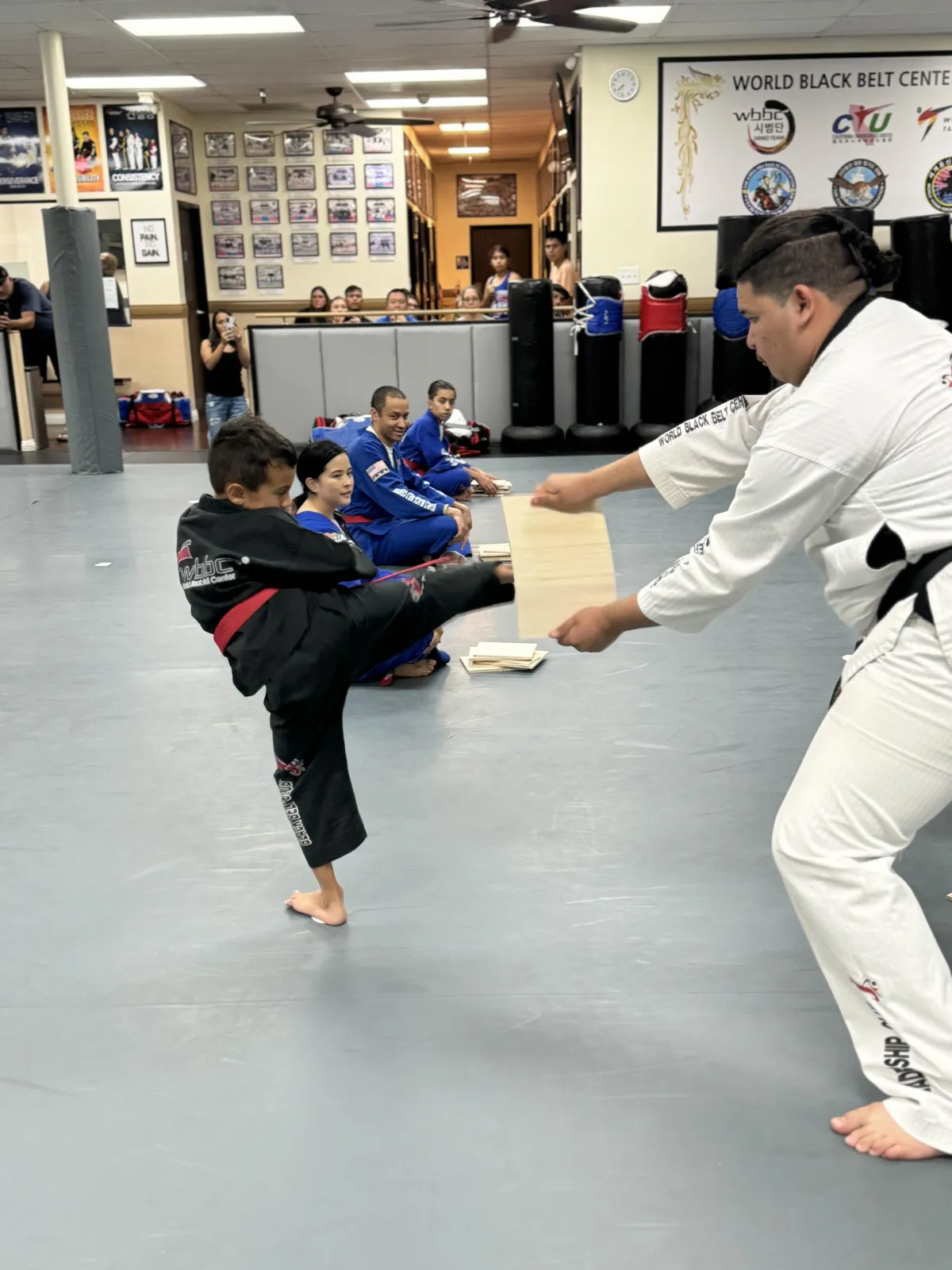
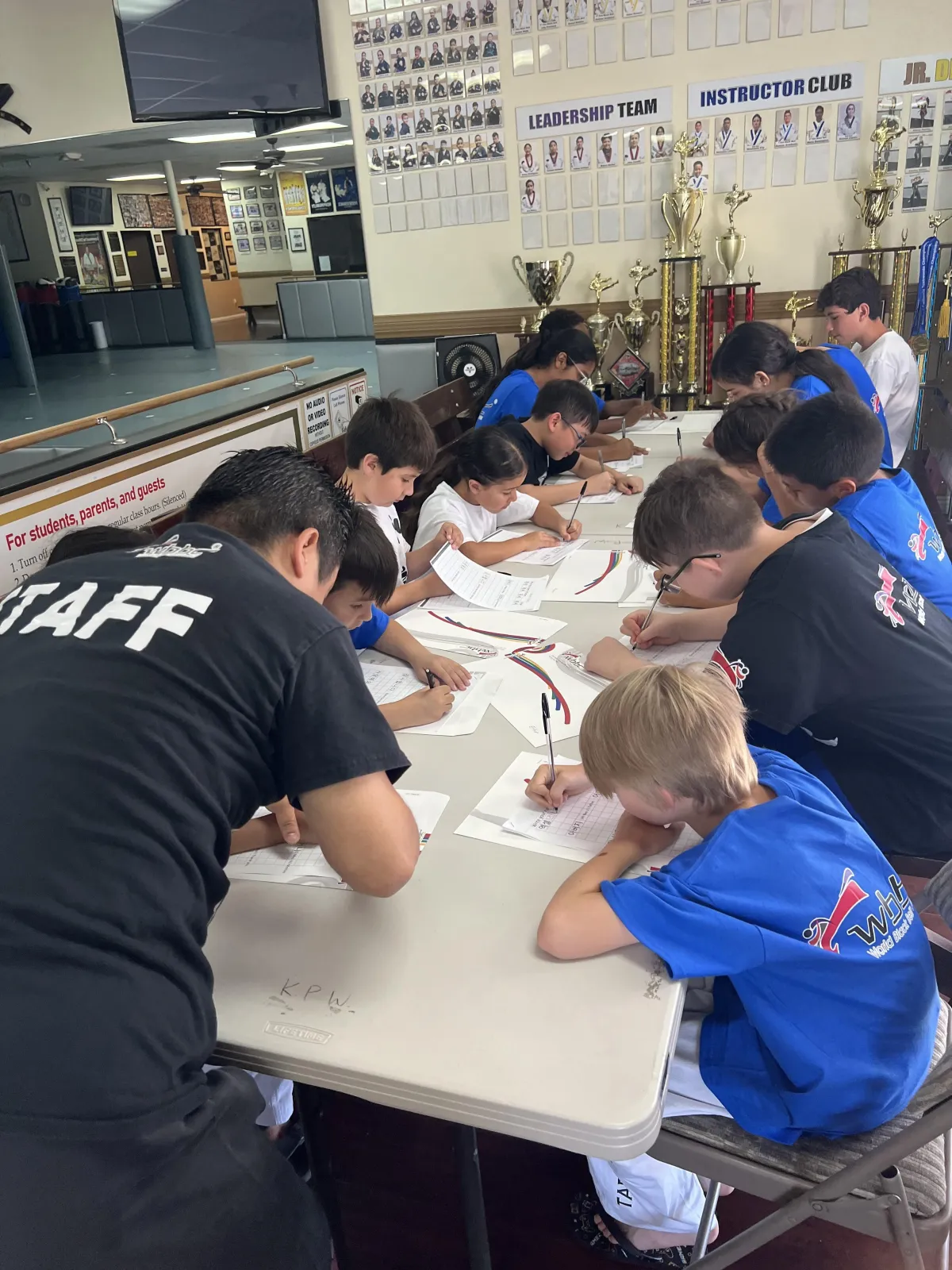
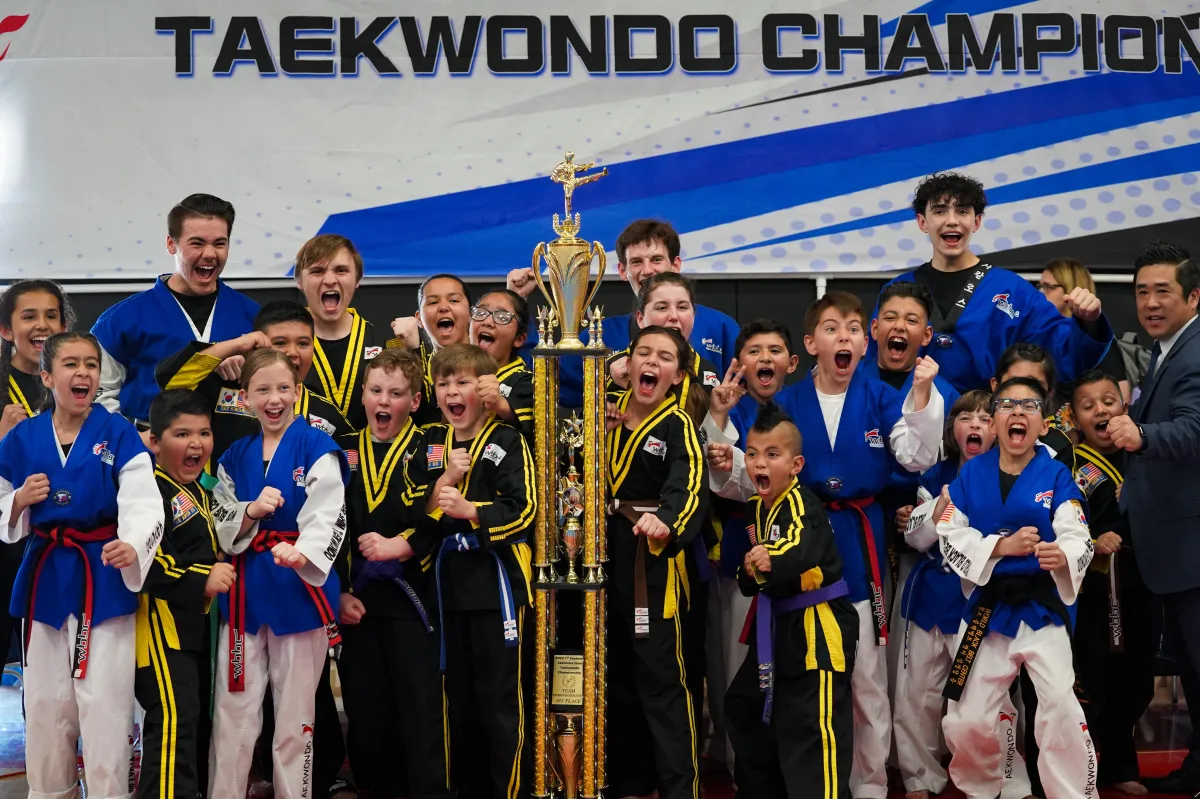
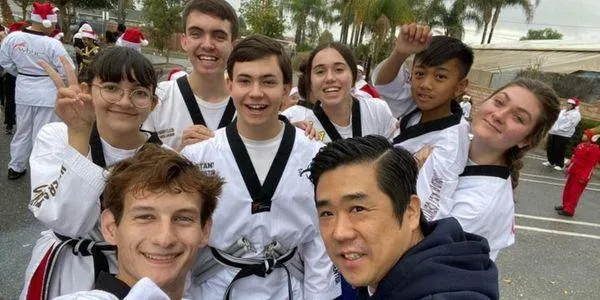
Try a Free Class Today!
Join us for a free class and see what makes our community special. Learn valuable self-defense skills and get a great workout!

